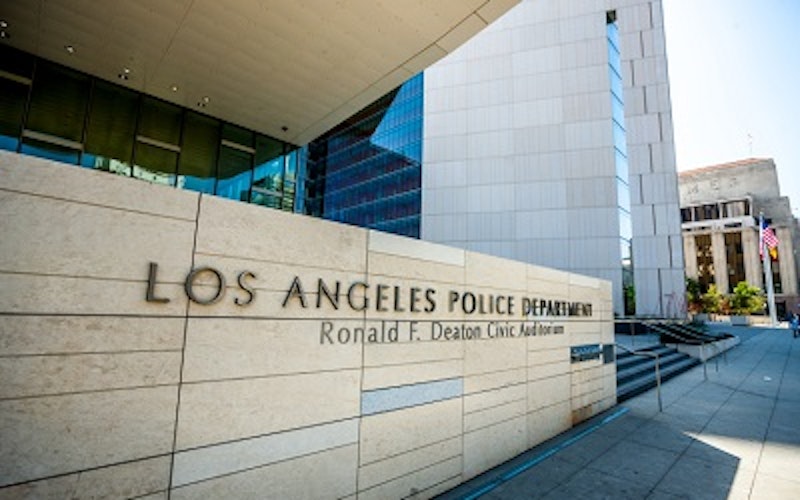
Culture At Large
Crime prevention and Christian witness
Crowd-sourcing is everywhere nowadays. From Kickstarter projects to asking your friends on Facebook for music advice, this method of leveraging the collective, creative power of the community can be applied to just about any problem you can think of. Apparently this even includes crime prevention. Well, sort of.
According to The Atlantic, the Los Angeles Police Department is incorporating a method of "predictive policing" that analyzes crime statistics to produce a map indicating where crime is most likely to occur. This allows police to focus on specific areas between calls, make friends with locals and address systemic troubles (broken lights, neglected properties) that are conducive to crime. These efforts have reportedly lowered the crime rate by 12 percent in one area of L.A.
As a part of its expansion, the LAPD issued this request to local residents of the Pacific Division:
“To further increase the effectiveness of Predictive Policing we are asking the public to spend any free time that you may have in these areas too. You can simply walk with a neighbor, exercise, or walk your dog in these areas and your presence alone can assist in deterring would be criminals from committing crime in your neighborhood.”
The fascinating bit in the police update was the line "your presence alone." You just being there can be a key factor in preventing crime in the neighborhood.
We demonstrate faithful presence by showing up, walking a dog, taking a jog, getting to know the streets and the people living on them.
So often when Christians begin to think about addressing the pressing social issues of the day, we go from extreme to extreme. Many of us retreat in fear for our own safety and that of our loved ones, or we pull back into quiet passivity, huddled away in safe enclaves where we pessimistically assume not much can be done. On the flipside, some of us switch into crusader mode, pulling a spiritual Batman, thinking that we need large-scale campaigns to get in the mix, solving crime alongside the police. (Well, unless you are an officer, in which case, crusade away.)
This LAPD initiative marks a transition from Batman to being there. Police are asking residents to love their neighbors and their at-risk neighborhoods by simply being neighbors. James Davidson Hunter's phrase "faithful presence" comes to mind. We demonstrate faithful presence by showing up, walking a dog, taking a jog, getting to know the streets and the people living on them. Now, to some, walking the pooch may not sound like much, but it takes courage to live out the faithfulness that dwells between fear and folly. It also requires the patience and hope to trust that our small-scale efforts matter. So often we fall short of neighbor-love, not out of fear, but out of a sense of futility.
So where do we get that courage? That patience? That hope? More fundamentally, where do we find the motivation to love our neighbors in this way? From the Gospel of our neighboring God, of course.
John tells us that in Christ, "the Word became flesh and dwelt among us." As Eugene Peterson put it in The Message, “the Word became flesh and blood, and moved into the neighborhood." As Christians, all of our neighboring is just a small-scale picture of what God has done for us in the Gospel. As we are indwelt by His Spirit and moved by His example we are filled with His love. What's more, we are united with Christ and His victorious resurrection; we have courage because ultimately our life is secure. Finally, we know that the ultimate victory is Christ's, which gives us the patience and hope "knowing that in the Lord your labor is not in vain."
Topics: Culture At Large, Theology & The Church, Evangelism, News & Politics, Social Trends, Justice